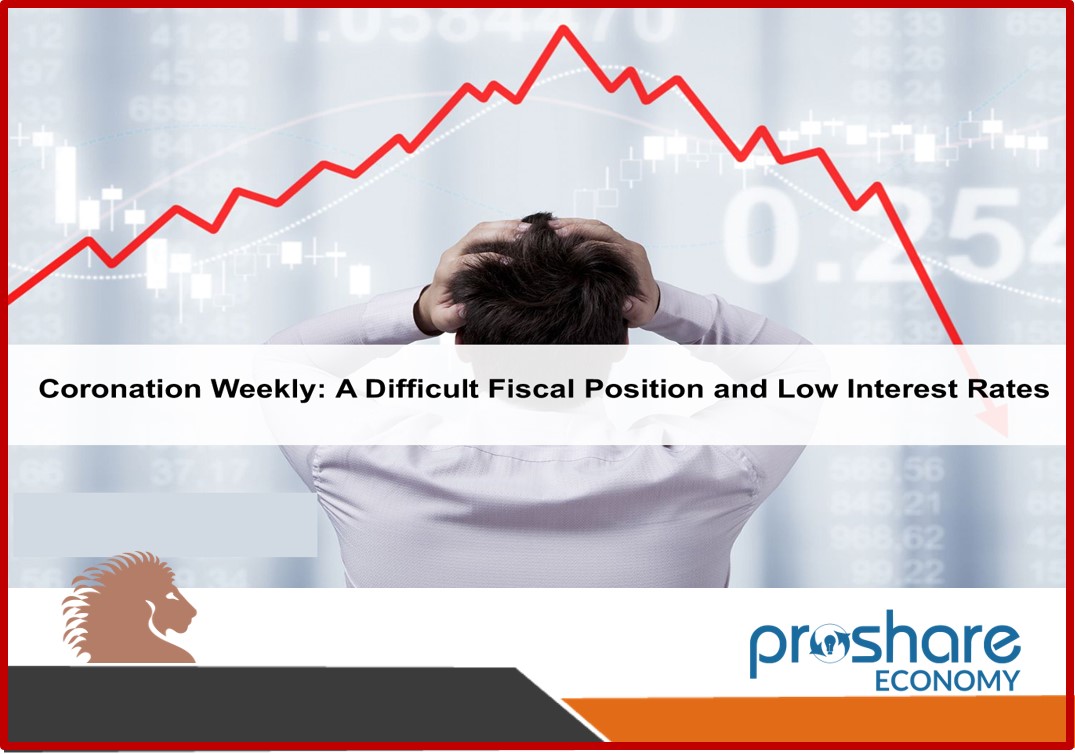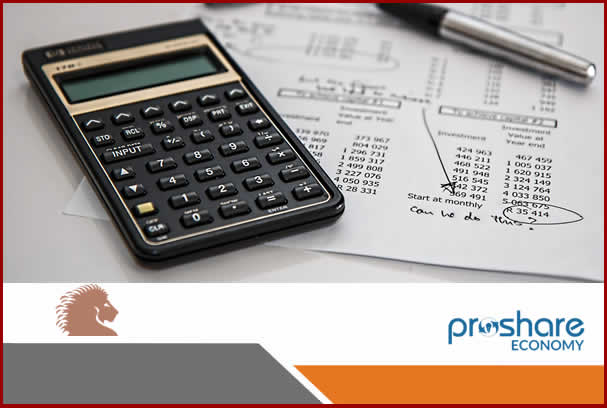Last week, the benchmark NGX All Share Index fell for the fifth week in a row. From its most recent peak in May, the ASI has now declined by 11.9%, implying that the market is now in correction territory. Does this mark the start of a bear market?
How Far Will the Market Correction Go?
Nigerian stocks, as measured by the benchmark NGX All-Share Index (ASI), officially fell into correction territory last week. This represents a decline that exceeds 10% from its most recent peak or high. On the other hand, a bear market is typically defined as a 20% drop from recent highs.
Stock market downturns such as these occur periodically and for various reasons. Sometimes the changes are related to excessive market valuations after an extended bull market. In other cases, they may be due to external events which overwhelm other fundamental factors that traditionally drive stock market performance. The most recent downturn can be attributed to increasingly hawkish monetary policy by global central banks and by the CBN which both cause market interest rates to rise.
The previous market declines over the last five years
Explanations for most serious market downturns are typically easier to come by after the fact. Consider some recent examples.
In early 2018, an extended bear market began that persisted until June 2020. This downturn came on the heels of the bull market caused by the sharp devaluation in the Naira, the introduction of the I&E window, and improved liquidity in the FX market. The most notable driver of the setback was the US Federal Reserve's hawkish monetary policy which led to a flight to safety and significant outflows from emerging market equities and debt.
In February 2020, investors were beginning to come to grips with the reality of the COVID-19 pandemic. Concerns about the unknown ramifications to the economy from social distancing and travel restrictions caused investors to lose confidence in stocks. However, that downturn was short-lived, and those who remained invested in stocks prospered through much of 2020.
A rise in domestic interest rates largely drove the May 2021 correction. However, the equities market began to rise again in July 2021 once it was clear that the increase in interest rates was temporary (rates began to fall again).
Stocks remain susceptible
Challenges such as CBN monetary tightening and rising inflation have kept the stock market volatile for most of the second half of 2022. As we advance, market fundamentals, such as corporate revenue and profits, will likely be an additional concern. A major question now is whether rising inflation is hurting the bottom line for companies. Companies have been able to maintain earnings levels because they have pushed through price increases, but with consumer wallets already under extreme pressure, can they continue to do that? It will tell us a lot about how earnings hold up over the next twelve months.
Maintaining the right perspective
It is important to maintain a proper perspective on the environment. We are likely to experience market ups and downs regardless, and overtime, markets have shown an ability to recover.
Markets are likely to continue to be volatile given the uncertainty about the extent of the CBN's interest rate hikes, the pace of earnings growth and the implications of the upcoming elections early next year, among other factors. While we may see a more favourable environment develop down the road, the market still faces many challenges, given its current economic underpinnings. Nevertheless, we urge investors to maintain a long-term perspective as timing the markets and being precise on when to enter and exit is challenging.
Our investment approach is not to make binary calls, up or down, on the direction of equity markets. Instead, we buy value when we see it. When there is a clear downward direction in markets, like now, we avoid trouble as much as possible. A combination of value investing and prudent portfolio management is the means to maximise investment returns
FX
Last week, the exchange rate at the Investors and Exporters Window (I&E Window) weakened by 0.49% w/w to close at N439.17/US$1. Elsewhere, the foreign exchange (FX) reserves of the Central Bank of Nigeria (CBN) decreased by 0.40% to US$38.10bn, the lowest level in a year, as the CBN continues to intervene across the various FX windows.
The FX reserve position remains close to its historic high, and we doubt that the CBN wishes to see the exchange rate slip this year. Therefore, we believe that the current I&E Window rate, or something very close to it, can be maintained until the end of the year, and into 2023.
Bonds & T-bills
Last week, bearish sentiment persisted in the Federal Government of Nigeria (FGN) bond secondary market as the average benchmark yield widened by 23bps to close at 13.53%. Across the curve, the yield on the 3-year (+36bps to 14.08%), 7-year (+1bp to 13.29%), and 10-year (+21bps to 13.66%) bonds rose. Our view remains that continued policy tightening by the monetary authorities and elevated Federal Government domestic borrowing will continue to drive yields upward over the coming months.
Activity in the Treasury Bill (T-Bill) secondary market was bearish amidst tight system liquidity. Consequently, the average benchmark yield rose by 7bps to 7.22%; the yield on the 343-day T-bill shed 2bps to settle at 9.01%. Elsewhere, the average yield for secondary market OMO bills compressed by 2bps to 10.29%, with the yield on the 208- day OMO bill falling by 2bps to 11.08%. At the primary auction later this week, we expect the CBN to offer N190.89bn (US$434.64m) in T-bills to investors
Oil
Last week, the price of Brent rose by 11.32%, the most since the week ended 25 March, to US$97.92/bbl, which is the highest level since 30 August. As a result, Brent is up 25.89% year-to-date and has traded at an average of US$102.29/bbl, 44.29% higher than the average of US$70.89/bbl in 2021.
Oil prices rose further last week as the market reacted to the 2.0mbpd production cut agreed by members of the Organization of the Petroleum Exporting Countries and its allies (OPEC+). It appears that global recession fears have taken a back seat to upcoming supply cuts and geopolitical uncertainty.
In this exceptional year for oil prices, we maintain that prices are likely to remain above the US$73.00/bbl set in Nigeria's government budget.
Equities
Last week, the NGX All-Share Index extended its losing streak, falling by 3.41%, its fifth consecutive weekly loss and the most since the week ending 3 April 2020, to settle at 47,351.43 points. Consequently, its year-to-date return fell to 10.85%. Airtel Africa (- 10.00%), Presco (-9.99%), Okomu Oil Palm (-9.98%), Cadbury Nigeria (-9.93%), and PZ Cussons (-9.91%) closed negative, while Geregu Power (+20.90%) and Ardova (+5.36%) closed positive. Performances across the NGX sub-indices were broadly negative as the NGX-30 (-3.45%), NGX Banking (-3.37%), NGX Pension (-2.31%), NGX Insurance (- 1.16%), NGX Oil and Gas (-1.02%), NGX Consumer Goods (-0.56%) and NGX Industrial Goods (-0.33%) indices all declined.
Model Equity Portfolio
Last week the Model Equity Portfolio fell by 2.99% compared with a fall in the NGX All-Share Index of 3.41%, outperforming it by 43ps. It has gained 14.94% year-to-date compared with a gain in the NGX-ASI of 10.94%, outperforming it by 409bps
Why did we outperform last week? We can give three reasons. The first is that we increased the proportion of cash in the portfolio, taking the percentage held in notional cash from 7.9% at the end of August to 19.6% now, reasoning that investors would become less interested in equities and more interested in fixed income now that market interest rates (T-bill rates and bond rates) are trending upwards. The correction took a while to come, but it has come.
Second, we made a notional underweight out of our position in Airtel Africa, making notional sales during the successive weeks of 12 and 19 September. The effect of these notional sales was to deliver 22bps outperformance last week when Airtel Africa fell by 10.0%. In the same weeks we took our notional positions in Okomu Oil and Presco down to very low levels which saved us 2bps last week when they also fell 10.0%, both of them.
Readers of these pages will recall that for the past two weeks we have debating whether to raise our notional positions in banks. On balance, and given that the official Cash Reserve Requirement (CRR - the percentage of customer deposits that must be held with the Central Bank of Nigeria) has been raised from 27.5% to 32.5%, we have decided against this move. In fact, this week we intend to halve our notional position in UBA.
We also intend to continue with our tactics regarding Airtel Africa and attempt to make notional sales in order to bring it down to a three-percentage-point underweight relative to its benchmark in the index, liquidity permitting (we respect actual market liquidity, even though our trades are notional). We will attempt to create a neutral notional position in newly-listed Geregu. In addition, we will attempt to make notional sales in Dangote Cement with the aim of bringing our notional holding down to three percentage points below its index weight.
 Lagos, NG • GMT +1
Lagos, NG • GMT +1











 299 views
299 views


















 Sponsored Ad
Sponsored Ad
 Advertise with Us
Advertise with Us









